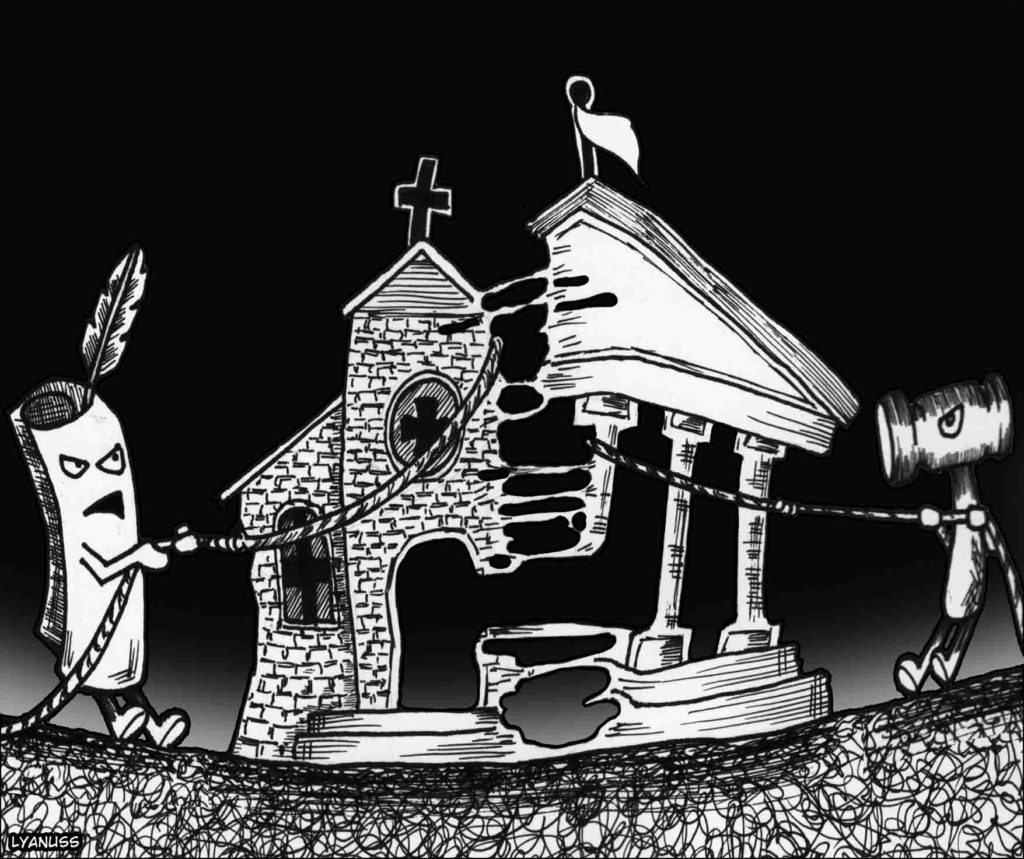by the Weekly Sillimanian | March 17, 2022

The Philippines is the country with the biggest Christian population in Asia. And despite the law dictating that the Church and State shall remain separate, we can still see a blurred line between the two parties, especially during a major event like the upcoming elections. With the prevalence of debates on what they both can and cannot do, we wonder what the boundaries exactly are between them.
There is an element common between the Church and the State — the presence of the electorate, citizens who will determine the next leaders for our country.
With such matters at hand, the Weekly Sillimanian believes that the people should put a premium on their individual discernment of what kind of leaders they should vie for the seat, rather than on the hive mentality where a religious denomination in which they belong would endorse a certain political candidate.
This kind of endorsement could potentially put the self-concept of a person in terms of freedom of choice in recession. Instead of finding an open space to exercise the said right on consecrated grounds, they would be compelled to be subtle with their choices for fear of being “marginalized” in the group.
According to the 1987 Constitution (Article II, Section 2), ”the separation of Church and State shall be inviolable”. By most people, this is usually taken as a declaration that the Church must remain neutral in all political affairs. However, this is anything but true. In fact, this part of the Constitution is about what the State cannot do for and with the Church, not the other way around, to prevent the latter from using taxpayers’ money to support a specific religion.
Additionally, the clergy consists of citizens, who are just like everyone else, that have the right to political opinion. And they do not lose this right merely because of their occupation or in this case, their denomination.
Instead, the Church and its members must understand the power of their influence. In a predominantly religious country, they are considered to be the moral basis for the majority of people and their decisions, including political ones. Because of this strong hive mentality, electoral candidates asking for the support of a specific church is not uncommon because it is an easy way to secure votes.
Ministers should preach the fundamentals of morality and promote the spirit of empathy among each one, rather than presenting a concrete embodiment of what our “ideal” leaders should be. Given that the people in the church only have a finite perspective towards things who are worshipping a God with unfathomable wisdom, ministers or priests should teach their followers to have an open and critical heart and mind to discern by themselves who the rightful leaders should be. We may be wrong with our thoughts towards our candidates, so it will be best to instill that conviction towards the people that they should choose wisely and selflessly.
To combat or restrain the hive mentality, we as voters have the responsibility to consider what each of our potential political leaders has to offer and refrain from choosing them just because our church leaders tell us to. On the other hand, authorities of the Church should advocate righteousness and other values and traits of a good candidate instead of explicitly endorsing specific people.
Remember, the separation of the Church and State stated by the Constitution does not mean that the Church must remain idle in politics. If anything, remaining idle would go against what most religions would teach — to advocate for the truth and what is right.


